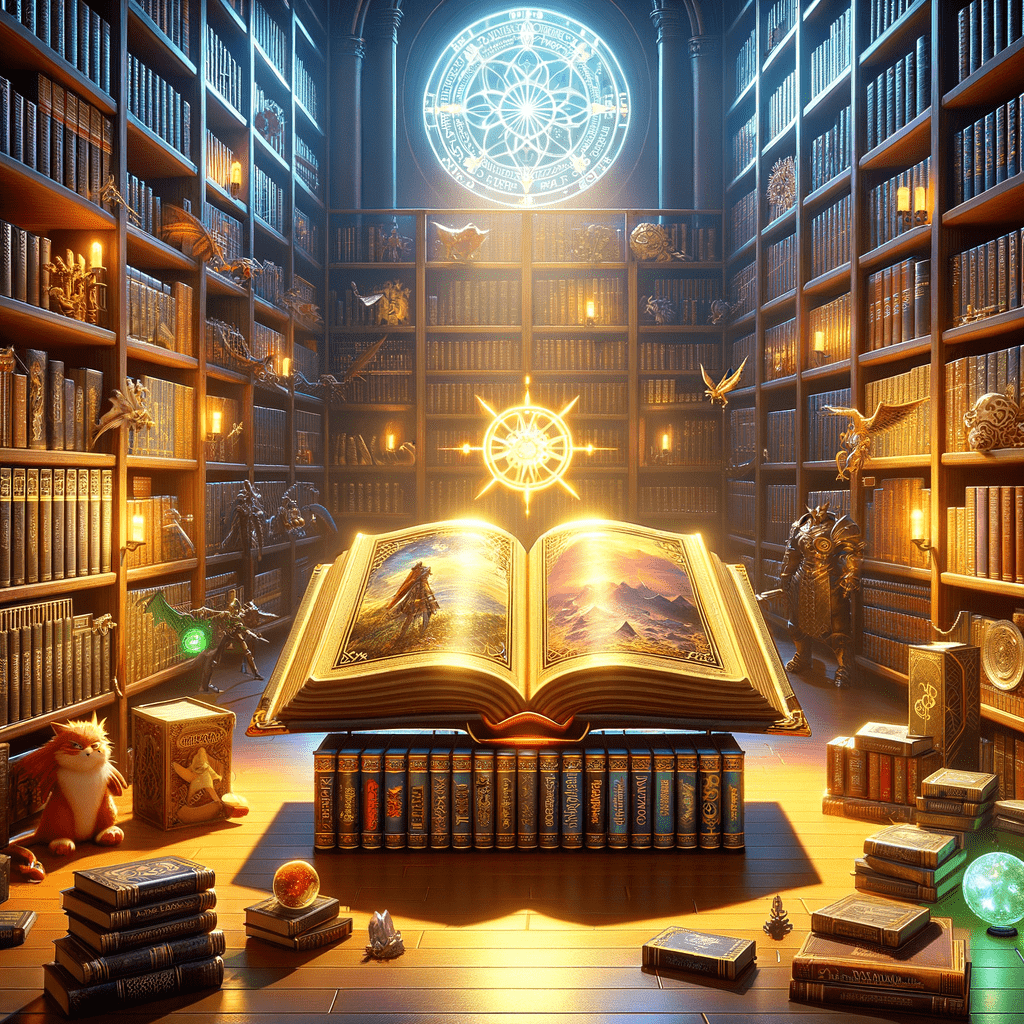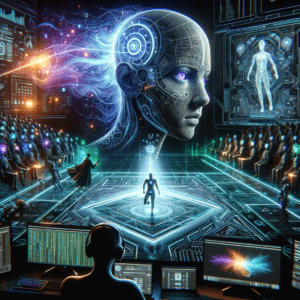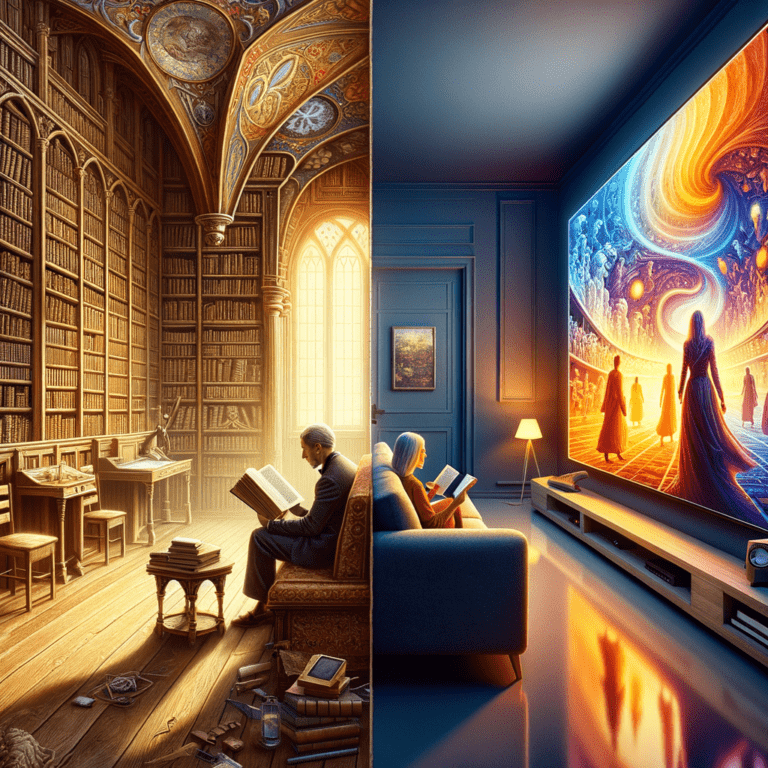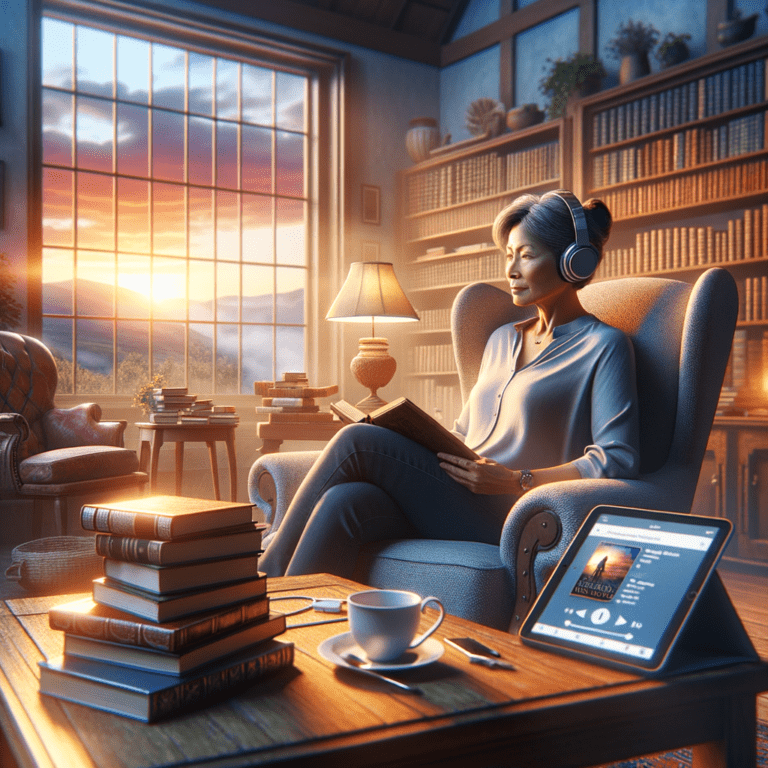Ah, the world of Role-Playing Games (RPGs)—isn’t it something magical? I often find myself reminiscing about those days where I was swept away by enchanting stories, drawn in by compelling characters, and utterly immersed in those fantastical worlds. It was like I was stepping into grand adventures of my own, battling dragons, saving kingdoms, and making unlikely friends. Just like the heroes in those epic tales, I too have found myself on a journey, witnessing the evolution of the RPG genre over the years. Certain games have stood out as monumental milestones, paving the way for everything that came after. Let me share with you my journey through what I think are the top 10 RPGs that have left an indelible mark on the genre.
Final Fantasy VII
Oh, Final Fantasy VII—where do I even start? Released in the magical year of 1997, this game shattered the ceiling and brought RPGs into the mainstream gaming world. I vividly remember being awe-struck by those groundbreaking 3D graphics, something I had never seen before. Cloud Strife, with his mysterious past, and Aerith, whose story tugged at heartstrings (mine especially), became unforgettable parts of my gaming story.
The narrative was rich, and Nobuo Uematsu’s unforgettable soundtrack was the cherry on top. Final Fantasy VII was like a bridge, ushering us from the 2D era straight into the 3D universe of gaming. Seeing Midgar for the first time—a bustling dystopian metropolis—it felt like I was staring into the future.
The magic and summon system was my playground, a labyrinth of strategies that had me hooked for hours on end. And those emotional punches? Let’s just say the tears back then still echo today. This game’s storytelling, characters, and design were perfection, leaving behind a legacy that dared others to even try to compete.
The Elder Scrolls V: Skyrim
Skyrim rolled into my life in 2011, and honestly, I got lost in it for weeks… okay, maybe even months. It was as if someone distilled the essence of open-world RPGs and molded it into this masterpiece where you could seriously lose yourself in the wilderness.
Skyrim is the ultimate RPG playground. It felt like entering a living, breathing world, full of mountains and towns just itching to be explored. Taking to the saddle on my trusty steed, riding through breathtaking landscapes—it almost felt real (or as real as pixels can be). I didn’t just build a character; I built a life in that digital world.
The game offered staggering freedom. Whether you wanted to be a stealthy thief or a dragon-bashing hero, Skyrim said, “Go for it!” It pushed boundaries for NPC interactions and branching storylines, inspiring countless other RPGs to venture beyond traditional storytelling.
Chrono Trigger
Ah, Chrono Trigger, the game that whispers nostalgic tales in every gaming circle. Released in the mid-90s, before “timelines” and “multiverses” were the rage, this classic took us on a time-hopping adventure through epochs. Akira Toriyama’s artwork (yup, the Dragon Ball guy!) added that timeless touch.
What got me hooked—and so many others—was its groundbreaking storytelling approach. Multiple endings, decision-driven twists, and that active-time battle system? It blew the RPG norms of its day right out of the water. Hopping between eras, unraveling mysteries, and building friendships with quirky characters like Frog—each replay was a dive into new paradigms.
Chrono Trigger revolutionized narratives in RPGs, urging developers to challenge storytelling conventions. I’ve replayed it too many times to count, chasing those elusive endings. It wasn’t just a game; it opened a portal to uncharted possibilities for the genre.
Mass Effect 2
Enter Mass Effect 2—BioWare’s sci-fi masterpiece. For me, Commander Shepard’s odyssey wasn’t just about racing across the galaxy; it was about forging alliances and making choices that echoed through my journey, weighing on my heart.
Unveiled in 2010, this sequel aced its lessons, refining from its predecessor. The character-driven narratives were impeccable; each crewmember had layers waiting to be unraveled. Conversations on the Normandy felt louder than a thousand battle cries.
BioWare choreographed choices that crescendoed into a personal finale for each player. Choice in RPGs wasn’t new, but here, every decision carried palpable weight, affecting not just the present game but the sequels too. Developers around the world took note, inspired to create engaging, consequence-heavy worlds.
The Legend of Zelda: Breath of the Wild
Fast forward to 2017, when Breath of the Wild burst onto the scene. Not just another chapter for the beloved Zelda series, it was a revolution—a breath of fresh air for open-world RPGs.
The game boldly broke from tradition. It presented a boundless Hyrule, urging you to explore every nook and cranny without restraint. That sense of freedom—climbing mountains, discovering shrines—was intoxicating. Six hours could vanish in the blink of an eye, lost to the siren call of adventure.
Breath of the Wild whispered sweet freedom to the genre, prompting developers to RSVP to this new adventure. Physics-based puzzles combined with intuitive problem-solving raised the bar for open-world RPGs. The experience shines bright in my memory—an example of how tradition and innovation can harmonize.
Dark Souls
Ah, Dark Souls. The game infamous for birthing a million shattered controllers—and that’s no joke. It isn’t merely a game; it’s a rite of passage. For those who’ve conquered its challenges, it feels more like personal triumph than mere victory.
Emerging from the fires of development by FromSoftware in 2011, it taught gamers the value of resilience over safety nets. Every battle was a lesson in grit amid the beautiful yet unforgiving world of Lordran. Armed with little more than wits and a thirst for its cryptic lore, we braved its gothic horrors.
Dark Souls’ influence on RPGs was monumental, pairing difficulty with atmospheric storytelling. The environments whispered tales of bygone battles. Beyond modernizing action RPG mechanics, Dark Souls offered a communal experience—a shared language of victories, hardships, and achievements all woven together.
The concept of consequence through death wasn’t new, but Dark Souls reminded us that failure was a ferocious teacher. Each move, each decision was burdened with significance. It reshaped both player and developer perceptions, leaving an indelible mark on the industry.
Fallout 3
Pip-Boy on standby! Fallout 3 exploded—literally—onto the scene in 2008, plunging us into a post-apocalyptic wasteland brimming with adventures and inevitable demise. Bethesda did an awesome job resurrecting this series, giving it a fresh, immersive 3D twist.
The first time those Vault doors clanged shut behind me, I felt the looming weight of the wasteland before me. Anticipation and dread mingled as I ventured into the unknown.
Fallout 3 mixed post-apocalyptic grit with RPG depth seamlessly. Exploration and questing were dialed to eleven—letting players roam a sandbox world teeming with society’s remnants. Choices sculpted experiences, diving players into moral ambiguity.
Bethesda’s twist on VATS (Vault-Tec Assisted Targeting System) made combat this intriguing blend of strategy and action. It was like freeze-tag with bullets, and vaults peppered throughout the landscape were treasure troves of haunting stories.
Fallout 3 wasn’t just great; it redefined RPG worlds and the freedom to explore nuclear-blasted vistas. It encouraged players to plunge shoulder-first into challenges and reshaped how narratives married heart-pounding gameplay.
World of Warcraft
2004 was epic in gaming history, thanks largely to World of Warcraft. Known affectionately as WoW, it did more than alter the RPG genre; it sparked a cultural phenomenon. More than a game, it was a thriving world—a behemoth pulling players from all walks into its grasp, building a community echoing through dorm rooms and family living rooms alike.
Dipping my toe into Azeroth’s waters, I was pulled by its tidal force. WoW mastered online social interaction, transforming digital spaces into hangouts where friendships formed amidst shared quests and epic raids. It was a timeless realm, weaving stories and cultures together into something fresh.
Guilds became second homes—I was thrilled at the prospect of an evening spent exploring dungeons. Blizzard expertly balanced innovation with familiarity. It was more than leveling up; it was elevating your social RPG status alongside millions in the community.
WoW redefined RPGs by creating powerful connections in a world unrestricted by pixels or bytes.
The Witcher 3: Wild Hunt
The year 2015 laid bare The Witcher 3: Wild Hunt—a tapestry altered permanently in the RPG landscape. Diving into Geralt of Rivia’s world was a choice I never regretted.
The story whispers linger like the scent of lilac and gooseberries, and this game shattered the notion of simple side quests—each carried weight. Polish developer CD Projekt Red brought book narratives to life, bathing them in breathtaking magic and care.
Character depth was profound, where each decision rippled like a stone into water. Complexity lived in every nook, every corner of The Continent—a land teeming with myth and morality. From Novigrad’s architecture to Kaer Morhen’s towers, legends of love, loss, and age were perpetual echoes.
The Witcher 3 painted a majestic tale of consequence beyond convention. It was a victory of interactive storytelling crafting an illusion of choice that reverberated through narratives like a well-strung lute.
Pokémon Red and Blue
Back in the mid-’90s, Pokémon Red and Blue landed like pokéballs hitting home—a delightful surprise that captured imagination everywhere. Who knew pocket monsters could redefine the RPG boardgame forever?
The genius of Pokémon was snaring camaraderie within its simple mechanics. These games introduced strategic thinking and a knack for completion. Each Pokémon had its story—a companion encased in a doodled red-and-white sphere.
Battle systems were intuitive, unfolding strategy over time. Young minds inspired by combining elements, team-building, and nurturing growth.
The franchise blossomed into the cultural monolith we see today. Pokémon made RPGs accessible—a golden ticket to adventures for many first-timers. It captured a spirit beyond bytes or landscapes—a shared journey that transcended ages and continents.
And there we have it—a personal tapestry interwoven with fantastical journeys among realms, timelines, and galaxies. Each RPG in my list didn’t just enter the scene; it carved its path, leaving perceptions of the genre forever shifted. Crafted with painstaking detail or playful experimentation, these games weaved not only stories but feelings into imagined worlds. As I conclude this nostalgic journey, I marvel at how these RPGs elevated the genre. They left cherished legacies, inspiring developers and gamers alike to pursue limitless horizons in tales yet untold. Isn’t the RPG world simply wondrous?












